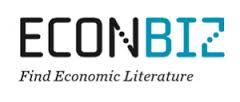Emotional Intelligence As a Significant Tool in IT Industry
DOI:
https://doi.org/10.26703/JCT.v13i1-10Keywords:
Emotional Intelligence, Self Awareness, Information TechnologyAbstract
Emotional Intelligence (EI) has attracted increasing attention and enjoyed a robust resurgence across a wide range of disciplines of psychology, education, and human resources over the last decade. The present decade has seen an ongoing interest of professionals and academicians toward the value of emotions at workplace. Tall claims have been made on one hand, while, on the other hand, the validity of such claims have been severely questioned
Classification-JEL : O33, O34
Downloads
Metrics
References
Abraham, R. (1999). Emotional intelligence in organizations: A conceptualization. Genetic, Social, and General Psychology Monographs, 125(2), 209–224.
Bateman, T.S., & Organ, D.W. (1983). Job satisfaction and the good soldier: The relationship between affect andcitizenship. Academy of Management Journal, 26(4),587–595.
Bar-On, R. (1997). Bar-On Emotional Quotient Inventory: A measure of emotional intelligence, technical manual. Toronto: Multi-Health Systems.
Borman, W.C., & Motowidlo, S.J. (1997). Task performance and contextual performance: The meaning for personnel selection research. Human Performance,10(2), 99–109.
Ashkanasy, N.M. (2002). Studies of Cognition and Emotion in Organisations: Attribution, Affective Events, Emotional Intelligence and Perception of Emotion. Australian Journal of Management 27:11-20.
Cooper, R. (1997). “Applying emotional intelligence in the workplace”, Training and Development, Vol. 51 No. 12, pp. 31-8.
Cooper, R.K. and Sawaf, A. (1997). Executive EQ: Emotional Intelligence in Leadership and Organizations, Grosset/Putnam, New York, NY.
Kernbach S, Schutte NS (2005). The impact of service provide emotional intelligence on customer satisfaction. J. Serv. Market.,19(7): 438-444.
Subhash C. Kundu Divya Malhan hrm Practices in Insurance Companies: A Study of Indian and Multinational Companies. Managing Global Transitions 7 (2): 191–215
Geetika, Tripti Singh,Vibhava Srivastava -HR Practices, Quality of Work Life and Organizational Efficiency; With special reference to IT-Enabled Service Sector in India Vol. No.3· JULY-SEPTEMBER, 2010
Cary Cherniss (2001) Emotional Intelligence and Organizational effectiveness (chapter 1) In The Emotionally Intelligent Workplace: How to Select For, Measure, and Improve Emotional Intelligence in Individuals, Groups, and Organizations edited by Cary Cherniss & Daniel Goleman, John Wiley & sons.
Mukherjee.I and Dasgupta. M, (2010) “Emotional Intelligence Fostering Positive Emotions – A Contributory Attribute To Life Enhancement”, 46th National and 15th International Conference of the Indian Academy of Applied Psychology
Singh, S.K. (20110, “Emotional Intelligence as Competitive Advantage”, Aayam, Vol. 1, No. 1, pp. 55-60
Singh, S.K. (2009), “Leveraging Emotional Intelligence for Managing Executive's Job Stress: A Framework”, Indian Journal of Industrial Relations, Vol. 45, No.2, pp. 255-264.
Singh, S.K. (2008), “Biographical Information as Correlates of Emotional Intelligence: A Study of Social Work and Software Professionals”, Indian Journal of Industrial Relations, Vol. 43, No. 3, pp.385-405.
Singh, S. K. and Singh, S. (2008), “Managing Role Stress through Emotional Intelligence: A Study of Indian Medico Professionals”, International Journal of Indian Culture and Business Management, Vol. 1, No.3., pp. 377-396
Singh, S. K. (2007), “Competing Through Leadership: The Role of Emotional Intelligence”, International Journal of Work Organization and Emotion, Vol. 2, No. 2, pp. 173-185.
Singh, S.K. (2007), “Emotional Intelligence and Organizational Leadership: A Gender Study in Indian Context”, International Journal of Indian Culture and Business Management, Vol. 1, No. 1 / 2, pp. 48-63
Singh, S.K. (2006), “Social Work Professionals' Emotional Intelligence, Locus of Control, and Role Efficacy: An Exploratory Study”, South African Journal of Human Resource Management, Vol. 4, No. 2, pp. 39-45.
Matthew, G., & Zeidner, M. (2001) Emotional intelligence, adaptation to stressful encounters & health outcomes. In R. Bar-On & J. D. A. Parker (Eds), The handbook of emotional intelligence. San Francisco, CA: Jossey-Bass/Pfeiffer.
Deepa, R. (2008). “Adaptation of Emotional Intelligence to Indian Context”. Sixth AIMS International Conference on Management, Vol. 40, Iss. 5; pg. 626.
Singh.Kavita, (2007 )“Developing human capital by linking emotional intelligence with personal competencies in Indian business organizations”, Int. Journal of Business Science and Applied Management, Vol. 12, pg. 1, 5 pgs
Rathi N., Neerpal and Renu Rastogi. Assessing the Relationship Between Emotional Intelligence, Occupational Self Efficacy and Organizational Commitment. Journal of Indian Academy of the Applied Psychology, Volume No: 35, October 2009

Downloads
Published
How to Cite
Issue
Section
License
Copyright (c) 2018 Bhavna Gupta

This work is licensed under a Creative Commons Attribution 4.0 International License.














